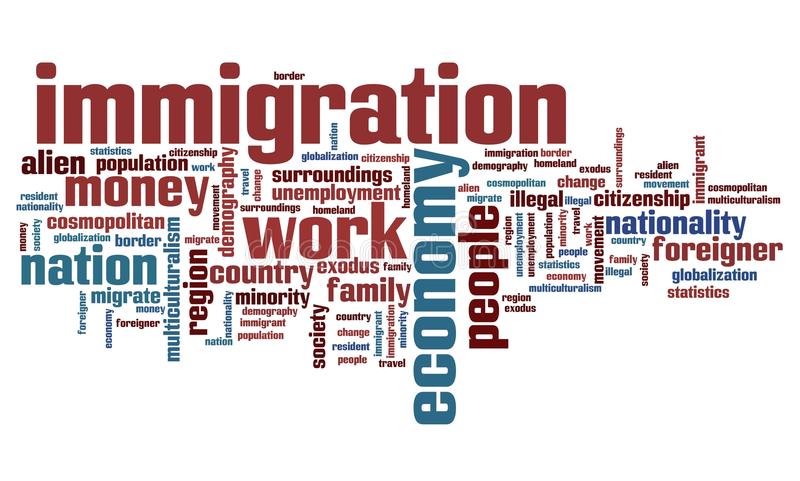
“Immigrant”: What’s in a name?
Podcast: Play in new window
Listen: Apple Podcasts | Spotify | Pandora | TuneIn | Deezer | RSS | More
This is the first in a 5-part series about immigration: the issue, and the very real human stories behind that issue. Inspired by work in a course called Promised Lands and Immigrants for my Master of Divinity degree at Starr King School for Ministry, I wanted to engage further with this subject.
Today, I’d like to unpack the basics. I’ll explore why we choose to use the label immigrant. After all, who exactly is an immigrant but a person who chooses (or is forced) to relocate from one place *into* another. I use the awkward phrasing *into* because immigrant translates from the Latin meaning specifically “to move (migrate) in” to a place. Thinking in terms of who might assign this label to someone (and why) can become an enlightening exercise.
Explicitly speaking, someone could call themselves an immigrant, though at least in the United States, one would be hard-pressed to imagine this happening. If I moved from Hungary to the U.S., I could imagine thinking of myself as a dozen things: a Hungarian, a European, a poet, a husband, or a doctor, but “immigrant?” Probably not.
Implicitly speaking, though, we begin to understand the multiple layers at play here. While someone may be technically an immigrant, there is likely little motivation for them to think of themselves as such. It’s more likely that someone in the host society – on the receiving end of this move between countries or cultures – would use a word like immigrant to categorize a person.
When we use labels for people, it makes it easier for us to make sense of the world. The world is complicated, right? My human brain needs to know if someone is a friend or foe, if they represent competition for scarce resources like food or jobs. I want to know if they are the much-needed help I’ve been desperate for if there aren’t enough hands to do the work that needs to be done.
Emigrants are leaving. Immigrants are coming. What is of less concern is that both are people. People emigrating. People immigrating.
What’s interesting to me is the hidden story. Why do we need words like immigrant? We already have words for people. Why not just use names? (Bill is moving here, or Oichi is coming) or labels like families, or Catholics, or farmers? The obvious story is that there must be something significant about the combination of a 1) person doing this 2): thing – moving between cultures – that is SO SIGNIFICANT that it becomes important to identify them solely in terms of what they are doing.
Can you think of a time when you have been labeled by someone in these terms (by an action you have taken, or a choice you have made)? Have you been a conscientious objector? A voter? A volunteer?
Perhaps the most common example I can think of is associating our label – our identity – with our work. I am a banker, or a landscaper, for instance. Those are often self-assigned labels, chosen for whatever reason, but typically ones that provide some positive sense of identity. What fascinates me is this notion that immigrant is a label often assigned by someone else.
Labels: They help us understand the world in terms of our personal narrative – a story we each tell ourselves about how the world works and why things are the way they are. There is also a larger meta-narrative that is woven together into a tapestry we call culture.The issue of who controls that meta-narrative depends on who has the power in a given situation. It is that power dynamic that we will talk about next. For now, I hope I have given you some food for thought and questioning – if only a little – about labels, about the human desires that cause us to move ourselves great distances and at great hardship, and about power – who has it, how is it being used, and what effect that has on us all.
Behind the obvious story is often a hidden one.




